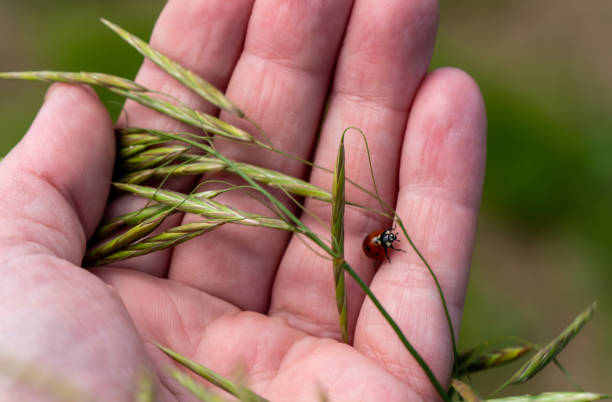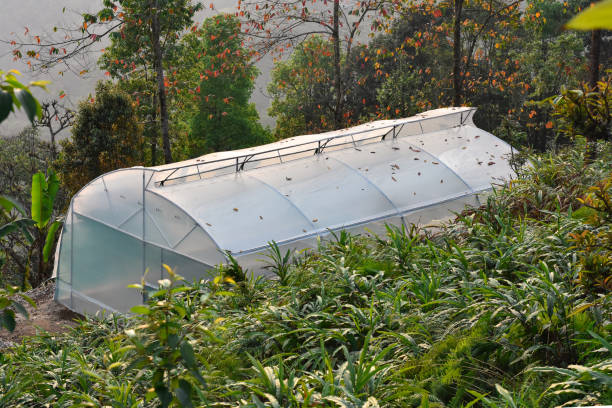Introduction
In recent years, the burgeoning field of insect farming has gained significant traction, presenting itself as a sustainable solution to various global challenges, including food insecurity and environmental degradation. However, like any other agricultural venture, insect farming comes with its unique set of risks and uncertainties. In this comprehensive guide, we delve into the realm of insurance for insect farms, exploring the various types of coverage available, the specific risks faced by insect farmers, and the importance of safeguarding these innovative enterprises.
Define the Importance of Insurance for Insect Farms
Understanding the Need for Protection
Insect farming, encompassing the cultivation of insects for human consumption, animal feed, and various industrial applications, represents a promising avenue for addressing pressing issues such as food scarcity and climate change. As the industry continues to expand, so do the potential risks and vulnerabilities faced by insect farmers. From crop failures due to disease outbreaks to property damage caused by natural disasters, the challenges confronting insect farming operations underscore the critical importance of robust insurance coverage.
The Role of Insurance in Mitigating Risks
Insurance serves as a vital tool for mitigating risks and providing financial security to insect farmers in the face of unforeseen circumstances. By transferring the burden of potential losses to insurance providers, farmers can safeguard their investments, maintain operational continuity, and sustain long-term growth. From safeguarding physical assets to protecting against liability claims, insurance coverage offers a comprehensive safety net for insect farming enterprises of all scales.

Types and Categories of Insurance Coverage
Property Insurance
Coverage for Physical Assets
Property insurance provides coverage for the physical infrastructure and equipment essential to insect farming operations, including farming facilities, machinery, and storage units. In the event of damage or destruction caused by perils such as fire, theft, or vandalism, property insurance offers financial compensation to repair or replace the affected assets, ensuring minimal disruption to farm activities.
Crop Insurance
Protection Against Crop Losses
Crop insurance is specifically designed to protect insect farmers against the risk of crop failures due to various factors, including adverse weather conditions, pest infestations, and disease outbreaks. By providing compensation for lost yields or reduced crop quality, crop insurance enables farmers to mitigate the financial impact of unpredictable events and maintain stability in their operations.
Liability Insurance
Coverage for Legal Liabilities
Liability insurance shields insect farmers from potential legal liabilities arising from third-party claims of property damage, bodily injury, or product-related issues. Whether it’s a customer slipping and falling on the farm premises or a contamination incident leading to consumer harm, liability insurance offers financial protection against the costs of legal defense and settlement, safeguarding the reputation and financial standing of the farm.
Business Interruption Insurance
Financial Protection Amid Disruptions
Business interruption insurance provides coverage for income losses and operating expenses incurred during periods of business disruption or temporary shutdowns. In the event of unforeseen events such as natural disasters, equipment breakdowns, or regulatory closures, this type of insurance ensures that insect farmers can continue to meet their financial obligations and sustain their operations until normalcy is restored.
Symptoms and Signs of Inadequate Insurance Coverage
Financial Vulnerability
Inadequate insurance coverage leaves insect farmers vulnerable to significant financial losses in the event of adverse events or emergencies. Without sufficient protection, the costs of repairing damaged property, replacing lost crops, or settling legal claims can pose severe financial strains on farming operations, potentially leading to bankruptcy or closure.
Operational Disruption
Insufficient insurance coverage can result in prolonged operational disruptions and delays in the aftermath of unforeseen events. Without the necessary financial resources to address damages or liabilities, insect farmers may struggle to resume normal operations, impacting their ability to meet market demands and fulfill contractual obligations.
Legal and Reputational Risks
Lack of liability insurance exposes insect farmers to substantial legal and reputational risks in the event of accidents, injuries, or product-related issues. Without adequate coverage, farmers may face costly litigation, damage to their public image, and loss of consumer trust, undermining the viability and sustainability of their businesses.

Causes and Risk Factors for Insect Farm Insurance Claims
Environmental Hazards
Insect farming operations are susceptible to various environmental hazards, including extreme weather events, natural disasters, and climate-related fluctuations. These environmental risks can cause significant damage to farming infrastructure, disrupt production cycles, and result in substantial financial losses if not adequately insured against.
Pest and Disease Outbreaks
The presence of pests and diseases poses a constant threat to insect farming operations, potentially leading to widespread crop damage and contamination. Without proper insurance coverage, farmers may struggle to recover from pest infestations or disease outbreaks, risking the viability of their businesses and the integrity of their products.
Equipment Malfunctions
Malfunctions or breakdowns of essential equipment and machinery can disrupt insect farming operations and compromise productivity. Without adequate insurance coverage for equipment repair or replacement, farmers may face costly downtime, decreased output, and reduced profitability, highlighting the importance of comprehensive coverage against mechanical failures.
Diagnosis and Tests: Assessing Insurance Needs
Conducting Risk Assessments
Before selecting insurance policies, insect farmers must conduct thorough risk assessments to identify potential hazards, vulnerabilities, and financial exposures. By evaluating factors such as location, climate conditions, pest prevalence, and operational risks, farmers can better understand their insurance needs and tailor coverage options to suit their specific requirements.
Consulting Insurance Professionals
Seeking guidance from insurance professionals or agricultural specialists can help insect farmers navigate the complexities of insurance coverage and make informed decisions regarding policy selection and customization. Insurance agents with expertise in agricultural risk management can offer valuable insights into available coverage options, policy limits, and cost-effective solutions tailored to the unique needs of insect farming operations.
Treatment Options: Customizing Insurance Policies
Tailored Coverage Solutions
Insurance providers offer a range of customizable policy options designed to meet the diverse needs and preferences of insect farmers. From comprehensive farm packages covering property, crop, and liability risks to specialized endorsements addressing specific perils or exposures, farmers can select insurance solutions that align with their risk management objectives and budgetary constraints.

Policy Limits and Deductibles
When choosing insurance policies, insect farmers must carefully consider policy limits, deductibles, and coverage exclusions to ensure adequate protection against potential losses. By assessing their financial capabilities and risk tolerance, farmers can strike a balance between affordable premiums and sufficient coverage limits, avoiding underinsurance or overinsurance scenarios.
Preventive Measures: Risk Mitigation Strategies
Implementing Risk Management Practices
In addition to insurance coverage, insect farmers can adopt various risk management practices to minimize the likelihood and severity of potential losses. Implementing integrated pest management techniques, maintaining robust biosecurity protocols, and investing in disaster preparedness measures can enhance resilience and mitigate risks associated with environmental hazards, pest infestations, and other threats.
Diversifying Revenue Streams
Diversification of revenue streams can help insect farmers mitigate the impact of crop failures or market fluctuations by spreading risks across multiple products or market segments. By exploring alternative uses for insect biomass, such as animal feed, pet food, or fertilizer, farmers can create additional revenue opportunities and reduce dependence on a single source of income.
Personal Stories: Real-Life Experiences
Success Stories
Numerous insect farming entrepreneurs have successfully navigated the challenges of risk management and insurance, demonstrating the importance of proactive planning and preparedness. From small-scale cricket farms supplying local markets to large-scale mealworm producers serving global demand, these success stories underscore the resilience and innovation driving the growth of the insect farming industry.
Lessons Learned
Through firsthand experiences and lessons learned, insect farmers share valuable insights into the risks, rewards, and best practices associated with insurance and risk management. By learning from the experiences of their peers and industry experts, aspiring insect farmers can gain practical knowledge and guidance for effectively safeguarding their own farming ventures.
Expert Insights: Advice from Industry Professionals
Risk Management Strategies
Insurance experts and agricultural professionals offer valuable advice and recommendations for insect farmers seeking to optimize their risk management strategies and insurance coverage. From identifying emerging risks to implementing proactive risk mitigation measures, these insights provide actionable guidance for protecting farming operations and ensuring long-term sustainability.
Importance of Collaboration
Collaboration between insurance providers, agricultural stakeholders, and government agencies is essential for addressing the evolving risk landscape facing insect farming and fostering resilience within the industry. By fostering partnerships and knowledge-sharing initiatives, stakeholders can collectively work towards enhancing risk awareness, promoting best practices, and facilitating access to insurance solutions tailored to the needs of insect farmers.

Conclusion: Securing the Future of Insect Farming
In conclusion, insurance plays a pivotal role in safeguarding the investments, livelihoods, and sustainability of insect farming enterprises worldwide. By understanding the diverse risks and challenges facing the industry and implementing comprehensive risk management and insurance strategies, insect farmers can navigate uncertainty with confidence, seize growth opportunities, and contribute to a more resilient and sustainable food system for future generations.
Read more about Insurance for Special Events: Protecting Your Occasions


